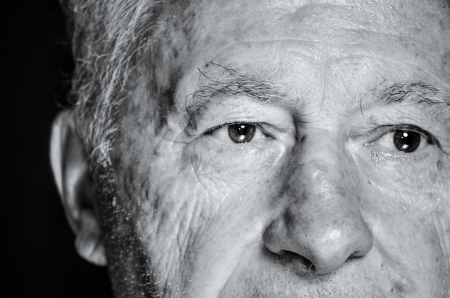-
-
-
-
-
-
-
-
Simone Morin says:
Thank you very much, excellent training.
All staff working in CHSLDs,
RI,RPA should take this training.
Very informative. -
Annie Roy says:
Hello, I wanted to thank you, I learned a lot and found it very interesting and enriching. Since I work in a prosthetic unit with people suffering from major cognitive disorders with aggressive behavior disorders, I have more tools in my hands, thank you very much!!!!
-
-
Marie Sandra Jean Denis Marie Sandra Jean Denis says:
Thanks for the training, it's going to help me a lot, both in the workplace and for someone close to me.
-
-
-
Gesta Juste Rainville says:
It's excellent and satisfying. It's a course to recommend to anyone who has the privilege of working with an older person.
-
Gesta Juste Rainville says:
This course is fabulous. It's highly recommended for anyone involved in customer service. Because in a way, we're all insane.
-
-
Valerie Dorval says:
Very nice, enriching training. Your tone is soft, calm and happy. Thank you very much.
-
Josiane Gonçalves Ribiero says:
Excellent training, the trainer/teacher Mirelle very clear in her way of expressing herself, thank you very much.
It wasn't hard to follow you, in fact it was pleasant. -
-
PAULINE RANGER says:
Thank you - excellent training. I like the quiz part and the exam which is not demanding.
-
PAULINE RANGER says:
How to find the description you gave us of the stages of Alzheimer's disease
-
Mireille Guillemette says:
Hello,
On Alzheimer.ca you'll find Alzheimer.ca description of the stages.
-
Johanna Floréal says:
Thank you
Very enriching training
Not just for care professionals, but also a great tool for families.

-
-
Online training
- Bientraitance and benevolence in everyday life 4-hour online training course
- Delirium: prevention, detection, intervention 3-hour online training course
- Dysphagia: from early detection to safe eating 4-hour online training course
- Alzheimer's disease, an adapted approach Online training
- Challenging Behaviours in Dementia Care: Prevention and Intervention Online training
- Personality disorders and difficult relationships: intervention kit 7-hour online training course
- Cognitive examination of the elderly Accredited online training - 7 hours
- Notes to the file 7-hour online training course
- Notes to file, basic concepts 3-hour online training course
- PQRSTU and clinical examination 3-hour online training course
- Wound care 10-hour online training course
- Palliative care: managing the most common symptoms at the end of life 7-hour online training course
- Palliative care: accompanying life to the end 7-hour online training course
- Polymedication, polydangers? Issues for healthcare professionals 7-hour online training course
- Clinical examination in a few minutes? yes, it's possible. 7-hour online training course
Interactive webinarsNotes to the file -
Online training
- Bientraitance et bienveillance au quotidien ONLINE 4 h
- Delirium: prevention, detection, intervention ONLINE 3 h
- Dysphagia: from early detection to safe eating ONLINE 4 h
- Alzheimer's disease, an adapted approach
- Challenging Behaviours in Dementia Care: Prevention and Intervention
- File notes (NEW VERSION 2024) ONLINE 7 h
- File notes, basic concepts (NEW VERSION 2024) ONLINE 3 h
- PQRSTU and clinical examination ONLINE 3h
- Wound care ONLINE 10 h
- Palliative care: managing the most common symptoms at the end of life ONLINE 7h
- Personality disorders and difficult relationships: a toolkit for intervention ONLINE 7h
- Polymedication, polydangers? Issues for healthcare professionals ONLINE 7h
- Cognitive examination of the elderly ONLINE 7h Accredited online training - 7 hours
- Clinical examination in just a few minutes? yes, it's possible. ONLINE 7h
Notes to the fileInteractive webinars - FAQ
- Contact us
-
-
Online training
- Bientraitance and benevolence in everyday life 4-hour online training course
- Delirium: prevention, detection, intervention 3-hour online training course
- Dysphagia: from early detection to safe eating 4-hour online training course
- Alzheimer's disease, an adapted approach Online training
- Challenging Behaviours in Dementia Care: Prevention and Intervention Online training
- Personality disorders and difficult relationships: intervention kit 7-hour online training course
- Cognitive examination of the elderly Accredited online training - 7 hours
- Notes to the file 7-hour online training course
- Notes to file, basic concepts 3-hour online training course
- PQRSTU and clinical examination 3-hour online training course
- Wound care 10-hour online training course
- Palliative care: managing the most common symptoms at the end of life 7-hour online training course
- Palliative care: accompanying life to the end 7-hour online training course
- Polymedication, polydangers? Issues for healthcare professionals 7-hour online training course
- Clinical examination in a few minutes? yes, it's possible. 7-hour online training course
Interactive webinarsNotes to the file -
Online training
- Bientraitance et bienveillance au quotidien ONLINE 4 h
- Delirium: prevention, detection, intervention ONLINE 3 h
- Dysphagia: from early detection to safe eating ONLINE 4 h
- Alzheimer's disease, an adapted approach
- Challenging Behaviours in Dementia Care: Prevention and Intervention
- File notes (NEW VERSION 2024) ONLINE 7 h
- File notes, basic concepts (NEW VERSION 2024) ONLINE 3 h
- PQRSTU and clinical examination ONLINE 3h
- Wound care ONLINE 10 h
- Palliative care: managing the most common symptoms at the end of life ONLINE 7h
- Personality disorders and difficult relationships: a toolkit for intervention ONLINE 7h
- Polymedication, polydangers? Issues for healthcare professionals ONLINE 7h
- Cognitive examination of the elderly ONLINE 7h Accredited online training - 7 hours
- Clinical examination in just a few minutes? yes, it's possible. ONLINE 7h
Notes to the fileInteractive webinars - FAQ
- Contact us
Mire Formation Conseil inc. / Products / Alzheimer's disease and other dementias: fostering collaboration and avoiding aggression ONLINE 7 hours








Reviews
There are no reviews yet.